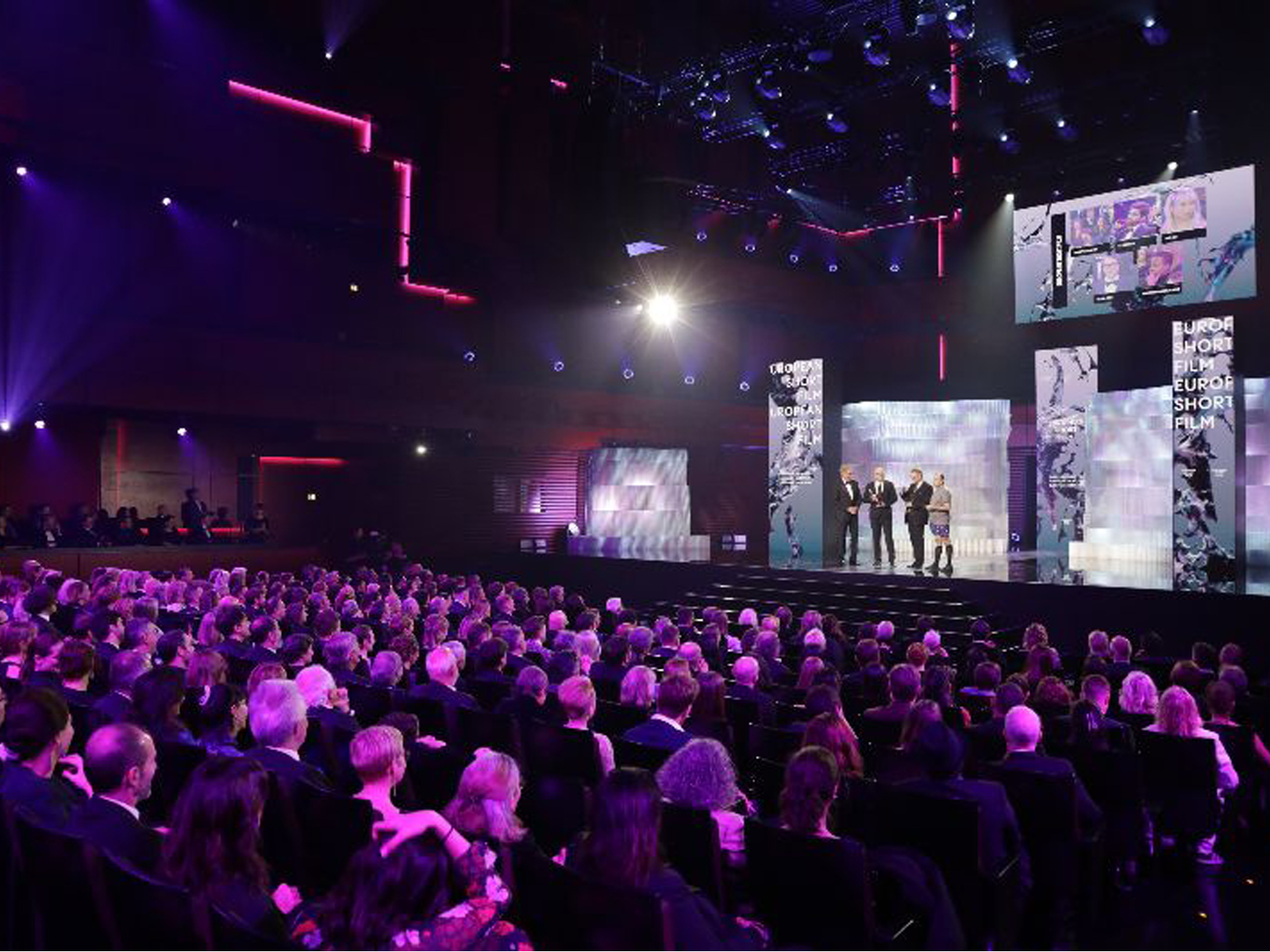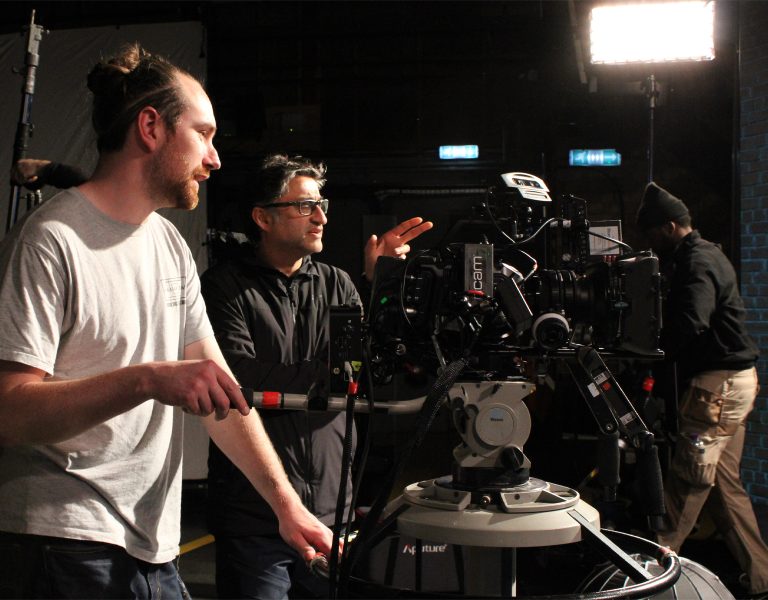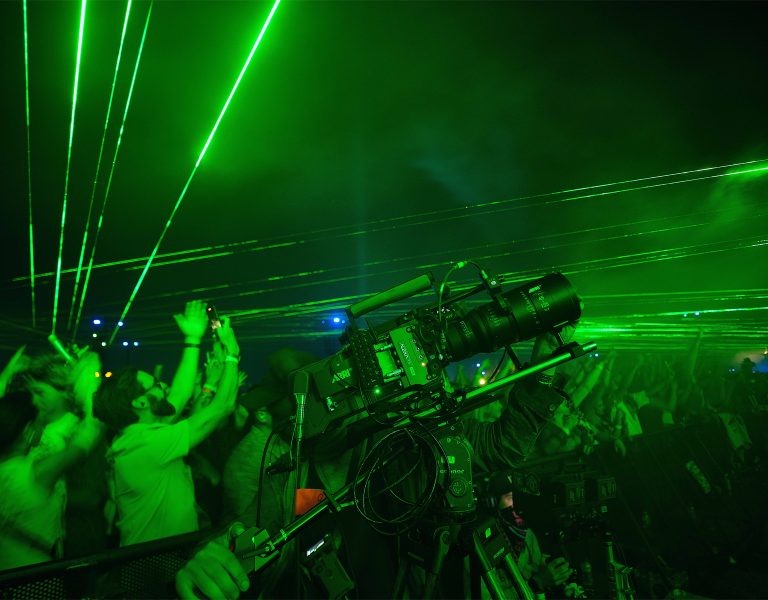
The European Film Awards, the European Film Academy’s annual award ceremony celebrating the best of European cinema, will move dates.
After the 37th edition in December 2024, the 38th edition will take place mid-January 2026 and will celebrate the best European films from the previous year. The date change is a next step in the repositioning and rebranding process of the event and the work of the European Film Academy. With the European Film Awards moving a month later to the beginning of the calendar year, European nominees and winners will be featured much more visibly within the international awards season including the Oscars®.
As the nominations for the European Film Awards will continue to be announced by mid-November each year, the date change will create a larger window for nominated films to be promoted. Academy members eligible to vote will be able to watch the films on the Academy VOD platform, or in cinema screenings if the nominated films are released during this period or a part of programmes the Academy organizes itself, the Month of European Film.
“European cinema is one of the great dominant creative and cultural forces in the global cinema hierarchy,” says the European Film Academy’s Chair of the board, Mike Downey, “The decision of the board to re-position the European Film Awards after almost four decades in December marks a fundamentally positive change as the event finally lands where it should be: front and centre in the heart of the awards season, where it can create maximum impact for European candidates, as well as enhance the Academy’s role as a significant player in the global awards game. This change puts the European Film Awards and, indeed, the best of European cinema in pole position during what is always a highly competitive awards period.”
Matthijs Wouter Knol, CEO and Director of the European Film Academy adds: “It’s time for the European Film Awards to take a step up. The date change automatically means a prolongation of our new initiative Month of European Film, the season at the end of the calendar year during which the Academy celebrates European cinema in 45 countries simultaneously. In the next years, we will develop this programme into a proper award season for films from Europe. After the season has been established on our continent first, we are keen to explore strategic collaborations and reach audiences in other parts of the world as of 2026. Fans of European films live everywhere. We want to make people aware that European cinema exists, that it can be discovered more easily. We’d like to offer European cinema where people prefer watching films – from cinemas to streaming platforms.”
With its new date, the European Film Awards will take their place within the international awards corridor among the Golden Globes, the BAFTAs and the Oscars. The ceremony of the European Film Awards will take place in the weekend after the Golden Globes, and prior to the closing of the nomination voting for the Oscars. European films vying for one of the European Film Awards will be able to optimise promotion and marketing in Europe and beyond its borders for the international awards season, increasing their visibility in the same period of the year.
The European Film Academy has taken its decision after ample consideration and ongoing conversations with the Academy of Motion Picture Arts & Sciences, the Hollywood Foreign Press Association and BAFTA, as well as the management of festivals such as Sundance, Göteborg, Rotterdam, and the Berlinale, that all take place shortly after the future European Film Awards weekend. Feedback from partners and stakeholders has been positive and welcoming.
The history of the European Film Awards started in a memorable weekend in West-Berlin in December 1988, when a group of European filmmakers gathered for the first-ever award ceremony celebrating European cinema. All present felt that something more needed to be done for European cinema to stay alive and vibrant. Together, they decided to establish a European Cinema Society.
Matthijs Wouter Knol: “It was a night of wild discussions in the Kempinski Hotel close to the illustrious Kurfürstendamm in Berlin. Bernardo Bertolucci and Isabelle Huppert were there, Wim Wenders, Ben Kingsley, Krzysztof Zanussi, István Szabó, Mikis Theodorakis, Erland Josephson, and others entered the room pretty soon. Until the early morning, they talked about their responsibility for European cinema and discussed the idea of founding a European Film Academy. On the next day, some of Europe’s finest filmmaking colleagues joined them, such as Ingmar Bergman, Anthony Hopkins, Giulietta Masina, Carmen Maura, Pedro Almodóvar, Krzsystof Kieslowski, Ornella Muti, Max von Sydow, and Richard Attenborough.“
Less than a year later, the European Film Academy was officially established and most of the people present in that historical meeting signed as its official founders. Ingmar Bergman was chosen to act as the Academy’s first President, an honorary function representing the outstanding quality and character of European cinema. In 1996, he was followed by German director Wim Wenders, and in 2021 by Polish filmmaker Agnieszka Holland.















